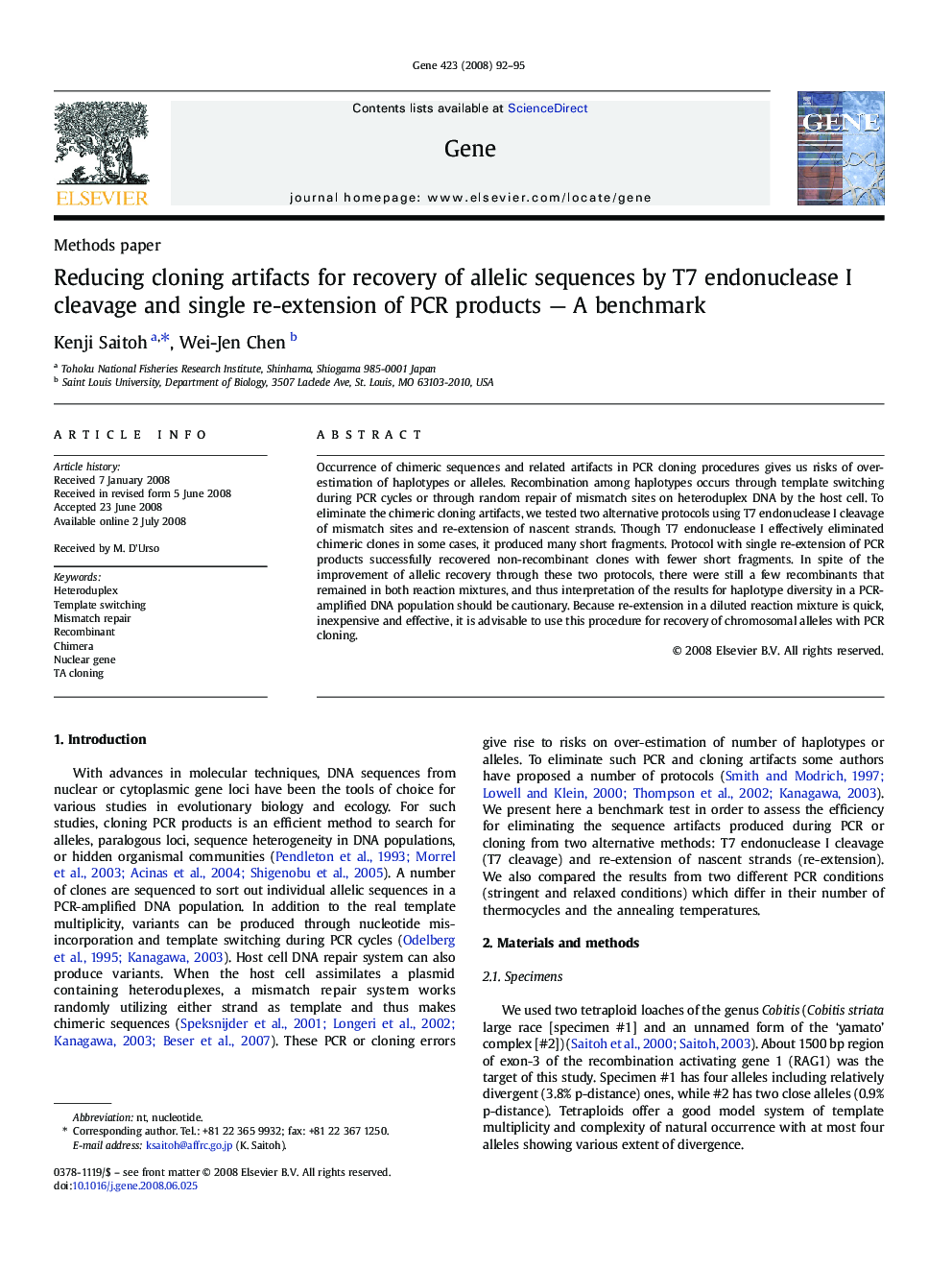| Article ID | Journal | Published Year | Pages | File Type |
|---|---|---|---|---|
| 2819190 | Gene | 2008 | 4 Pages |
Occurrence of chimeric sequences and related artifacts in PCR cloning procedures gives us risks of over-estimation of haplotypes or alleles. Recombination among haplotypes occurs through template switching during PCR cycles or through random repair of mismatch sites on heteroduplex DNA by the host cell. To eliminate the chimeric cloning artifacts, we tested two alternative protocols using T7 endonuclease I cleavage of mismatch sites and re-extension of nascent strands. Though T7 endonuclease I effectively eliminated chimeric clones in some cases, it produced many short fragments. Protocol with single re-extension of PCR products successfully recovered non-recombinant clones with fewer short fragments. In spite of the improvement of allelic recovery through these two protocols, there were still a few recombinants that remained in both reaction mixtures, and thus interpretation of the results for haplotype diversity in a PCR-amplified DNA population should be cautionary. Because re-extension in a diluted reaction mixture is quick, inexpensive and effective, it is advisable to use this procedure for recovery of chromosomal alleles with PCR cloning.
